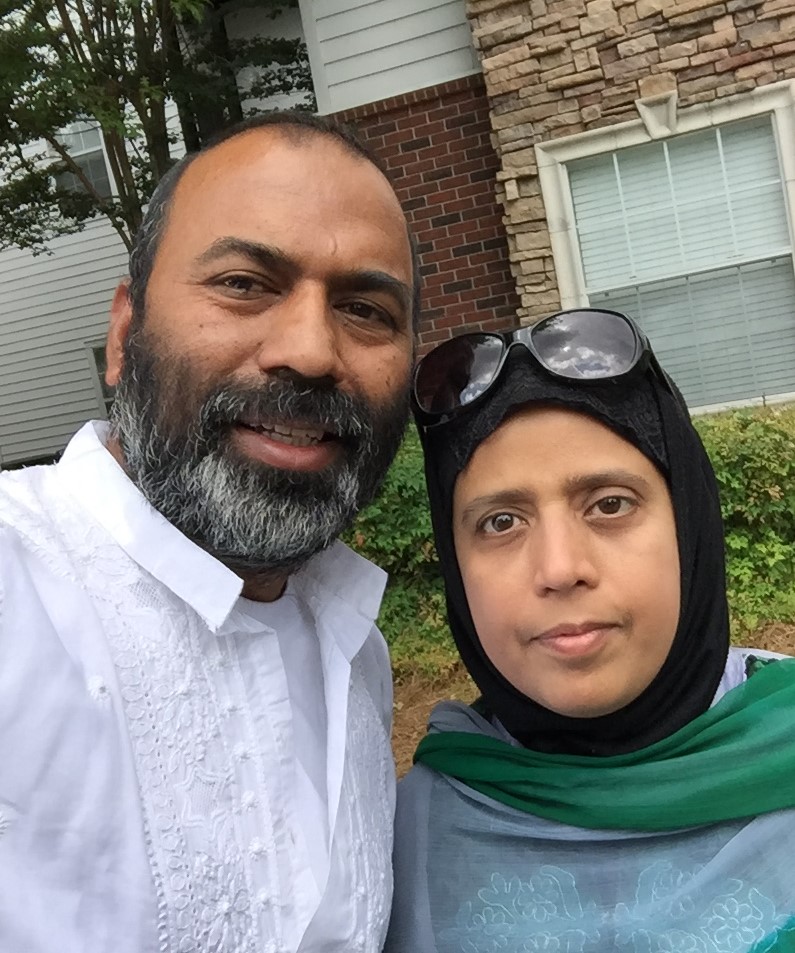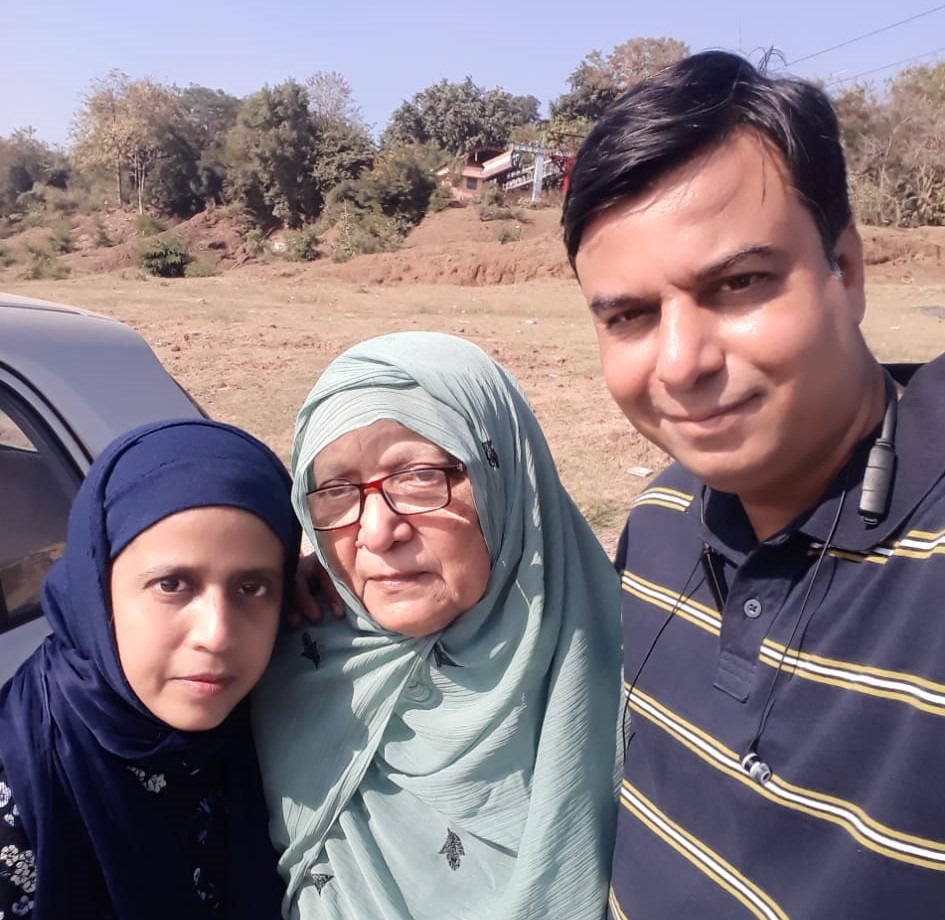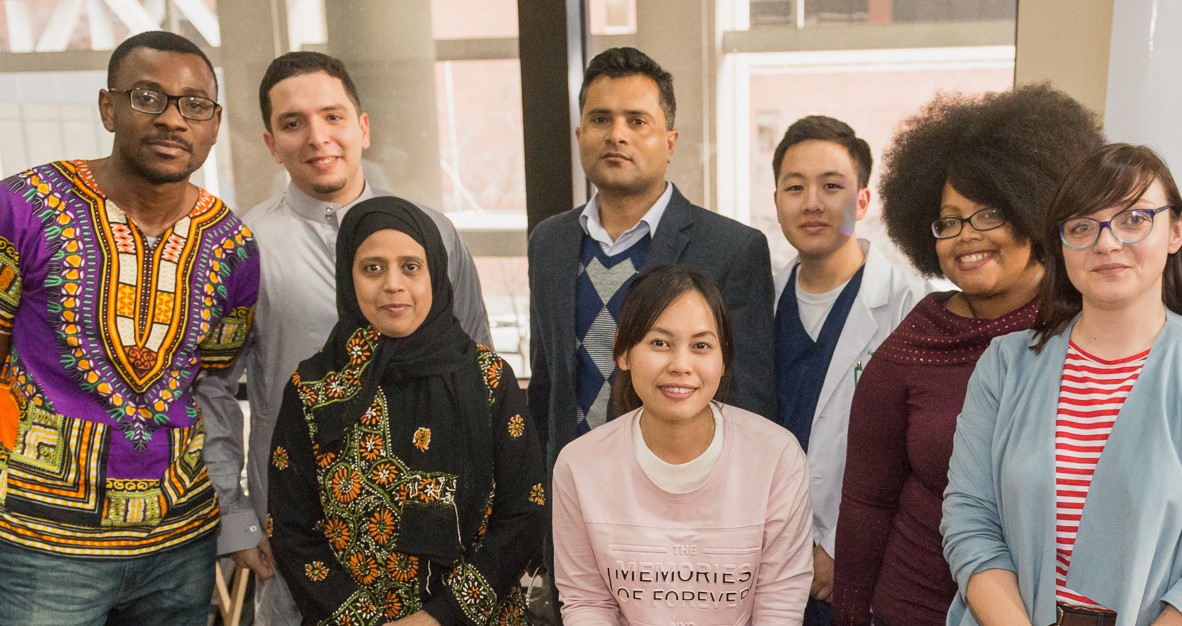
Nabiha Yusuf, Ph.D., MSPH, associate professor in the Department of Dermatology, has been a part of UAB faculty for twenty years—when she joined as a postdoctoral fellow in Dr. Craig Elmets’ lab in Dermatology. Yusuf received her Ph.D. in Immunology from India and her MSPH in Epidemiology from UAB. Her research studies the role of innate immune responses in cancer and inflammatory/autoimmune diseases. Yusuf is the senator for the School of Medicine, vice-chair for the Faculty Development Committee, and the officer for Diversity and Inclusion liaison for the Department of Dermatology.
For Part 4 of the AAPI Heritage Month series, the School of Medicine communications team sat down with Dr. Yusuf to discuss her lineage, her values of equality, and why UAB’s emphasis on diversity is rewarding in her career.
 Dr. Yusuf and her familyQ: What is your heritage/lineage?
Dr. Yusuf and her familyQ: What is your heritage/lineage?
I am an American Muslim of South Asian descent, born and raised in India. My paternal grandfather was a decorated officer who graduated with honors from a reputed Police Academy in India. My maternal grandfather was a graduate of Grant Medical College, Mumbai, India. He served as a Health Minister and established the Government Medical College at Nagpur, India. Both my parents were academicians. My father was a professor of Management and my mother was a principal of a girl’s school. Our strong mother single handedly raised my brother and I after our father passed away while we were still young. Due to her resilience, I was able to attend a renowned university for my Ph.D. and my brother could go to medical school.
Q: What are some of the most important values for you as an AAPI individual?
My parents did come from privileged backgrounds but they were self-made people. They taught me the same values. They taught me that I could achieve anything in life through good education, honesty and hard work. I grew up in a very diverse environment in India. I lived in a university campus with a mixed population and went to a Catholic school. These experiences taught me tolerance and respect for individuals of multiple faiths and origins at a very early age. My parents were always involved in charitable and social work. My mother has been an advocate of female education and well-being. She has worked with girls and women in underserved areas to help them get educated and employed. We were taught to share our things with the less fortunate around us, to be humble, and to treat everyone as equal. These values have always been central to my beliefs.
Q: How do you celebrate your AAPI heritage?
I am proud of my South Asian heritage, and am equally proud to be an American citizen. My husband and I are involved in volunteer work at our local mosqueand other organizations in the Birmingham area. . We organize several interfaith activities for our youth. I also provide career counseling to women and mentorship to youth in our community.
Q: What does UAB’s emphasis on diversity and inclusion mean for you in your career?
UAB's emphasis on diversity and inclusion has been the most rewarding aspect of my stay here and has helped me grow and prosper in my career. My long stay at UAB is a testament of my faith in the policies here. I have travelled to most corners of United States but have always come back to UAB, as this is home for me.
 Dr. Yusuf and members of the Dept. of DermatologyQ: Why is diversity and inclusion important to the Department of Dermatology?
Dr. Yusuf and members of the Dept. of DermatologyQ: Why is diversity and inclusion important to the Department of Dermatology?
The Department of Dermatology pays special importance to diversity and inclusion. My mentor Dr. Elmets, has always been very accommodating. My appointment as the ODI liaison for my department has helped me to understand the issues at close quarter and contribute to the success of this initiative. My chair, Dr. Elewski, has been supportive in providing equal opportunities to faculty and staff of color, especially women like me.